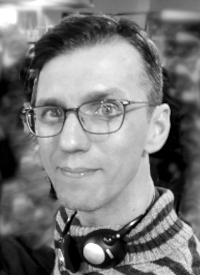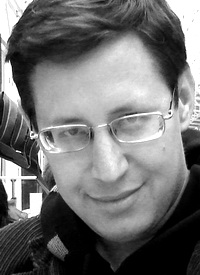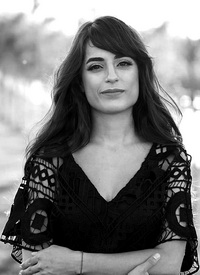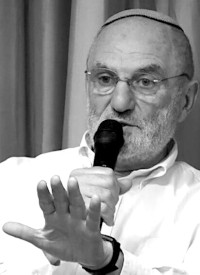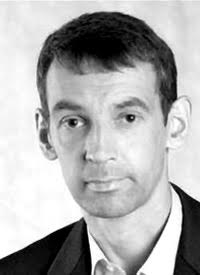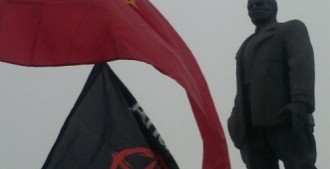
On February 8, under artillery fire near the village of Komissarovka, one of the authors of our web-journal was killed -- Vsevolod Petrovsky, a Marxist historian, organizer of the anti-fascist movement, and one of the best left-wing journalists of Donbass and Ukraine. As a strong opponent of any social injustice and any nationalism, Vsevolod always acted with harsh criticism of the Yanukovych government -- but, at the same time, immediately pointed to the chauvinistic and anti-democratic content of the “EuroMaidan” movement, and became its consistent opponent, as told in well-written articles about Maidan and "AntiMaidan."
The best way to preserve the memory of this man is to continue the struggle against class oppression and fascist reaction, for which activist and journalist Vsevolod Petrovsky gave his life.
LIVA directs your attention to this article written by him exactly one year before his death, appealing to the principles of proletarian internationalism and brotherhood of the working class of Donbass, Ukraine and all over the world.
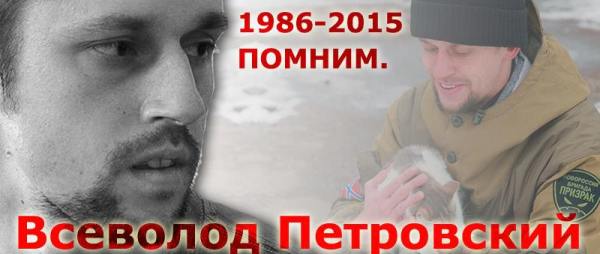
On February 9 in Donetsk, the traditional rally took place dedicated to the 96th anniversary of the Donetsk-Krivoy Rog republic [Soviet republic declared in 1918]. Representatives of various political and public organizations and labor activists gathered at the monument to the founder and leader of the republic -- Artem (Fyodor Sergeyev).
On February 9, 1918, the IV Congress of Soviets of Workers' Deputies of Donetsk and Krivoy Rog basin opened in Kharkov. On February 12, the Congress proclaimed the establishment of the Donetsk-Krivoy Rog Soviet Republic (DKSR). The territory of the autonomous entity was defined not by ethnicity but on industrial-economic principles: the republic included the industrialized areas of the east and south of present-day Ukraine.
Soon after the creation of the DKSR, the Donbass Red Army began fighting against German and Austrian invaders, supported by Ukraine’s bourgeois Central Rada. In May 1918, after fierce battles against an enemy of superior strength, the Red Army was forced to leave the territory of the republic. In February 1919, the Donetsk-Krivoy Rog republic was liquidated; after its territory was liberated from interventionists and the White Guard, it became part of the Ukrainian SSR.
Speaking of the Donetsk-Krivoy Rog Soviet Republic, it is wrong to focus on the national question. This republic, although it was an autonomous part of the RSFSR, was primarily Soviet, based on the principles of proletarian internationalism. The creators of the republic fought Ukrainian nationalists along with other enemies of the Revolution. But Artem wouldn’t have thought of sticking insulting nicknames on the inhabitants of other regions of Ukraine. The Donbass revolutionaries, following Lenin, understood very well the importance of a united struggle of Russian and Ukrainian workers against the exploiters.
Suffice it to say that, shortly before the proclamation of the DKSR, Donetsk Red Guard helped their comrades in Kiev, who undertook the rebellion at the Arsenal factory. And the history of Galychina [West Ukraine region] recalls not only Nazi collaborators Bandera and Shukhevych, but also the Galycian Soviet Socialist Republic, established in 1920 and crashed by Pilsudski and S. Petliura.
Аnd Artem would hardly have given long talks about the "soulless West." Instead, he had adopted the advanced ideas of Marxism – created by natives of Germany, forced to live and work in exile in the UK. Artem was educated in Paris. Fought with police in Russia. Worked in the fields and in the ports of China. Was imprisoned in Brisbane, Australia -- as one of the founders of the Socialist Workers Party and proletarian trade unions of that country.
The basis of all his achievements were the ideas of global solidarity of workers, not limited to the "Russian world.” And, of course, we must not forget that as Marxists, the founders of the DKSR rightly considered the basis of all social processes not "spirituality" or "cultural codes,” but economics.
They sought to create an economic system based on the socialization of the means of production, sound planning and the fair distribution of wealth. Therefore, speakers who proclaim the need for Ukraine to join the Customs Union should remember that, while this bourgeois association could, perhaps, bring certain benefits to residents of Ukraine, it is infinitely far from the economic model which Artem and his supporters fought for.
And today, the interests of Donbass are not rivalry between the regions of the country, but solidarity of working people all over Ukraine in the fight for the establishment of a just society and a sound economic system.
Vsevolod Petrovsky
Translated by Greg Butterfield
-
Історія
Африка и немцы - история колонизации Намибии
Илья Деревянко история колонизации Намибии>> -
Економіка
Уолл-стрит рассчитывает на прибыли от войны
Илай Клифтон Спрос растет>> -
Антифашизм
Комплекс Бандеры. Фашисты: история, функции, сети
Junge Welt Против ревизионизма>> -
Історія
«Красная скала». Камни истории и флаги войны
Андрій Манчук Создатели конфликта>>

.jpg)
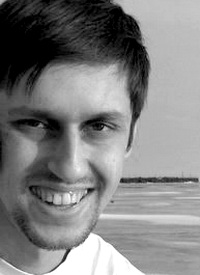
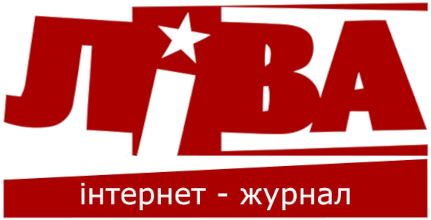










 RSS
RSS
